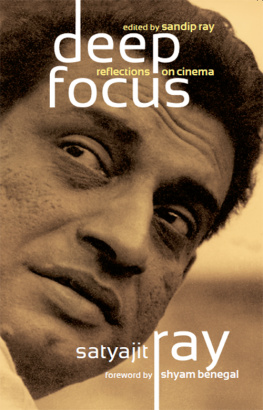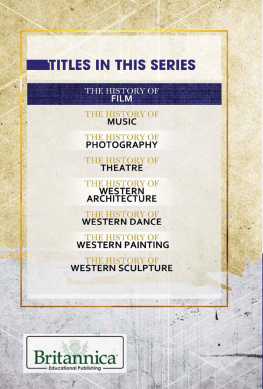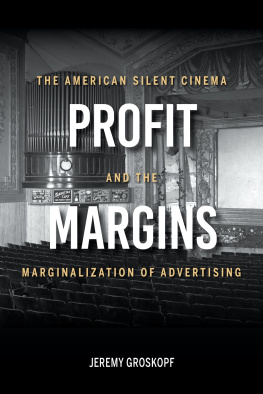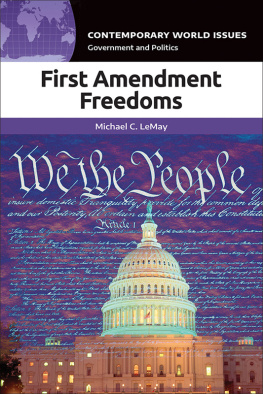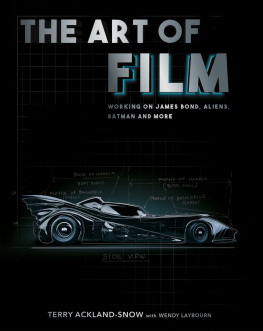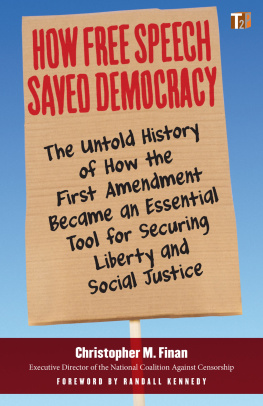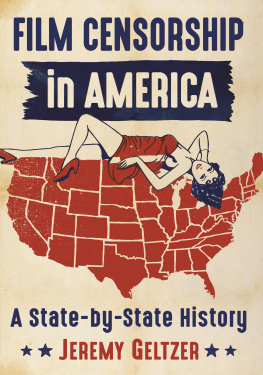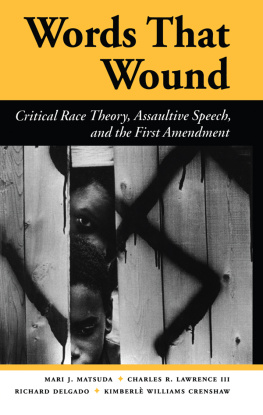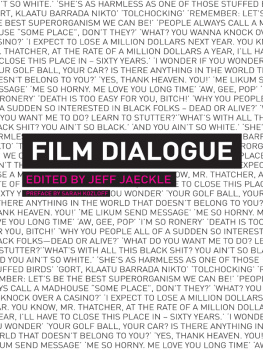Dirty Words & Filthy Pictures
FILM AND THE FIRST AMENDMENT
Jeremy Geltzer
FOREWORD BY ALEX KOZINSKI,
Chief Judge of the U.S. Court of Appeals for the Ninth Circuit

UNIVERSITY OF TEXAS PRESS
AUSTIN
Copyright 2015 by the University of Texas Press
All rights reserved
First edition, 2015
Requests for permission to reproduce material from this work should be sent to:
Permissions
University of Texas Press
P.O. Box 7819
Austin, TX 78713-7819
http://utpress.utexas.edu/index.php/rp-form
Library of Congress Cataloging-in-Publication Data
Geltzer, Jeremy, 1969 author.
Dirty words & filthy pictures : film and the First Amendment / Jeremy Geltzer. First edition.
Pages cm
Includes bibliographical references and index.
ISBN 978-1-4773-0740-3 (cloth : alk. paper) ISBN 978-1-4773-0743-4 (pbk. : alk. paper) ISBN 978-1-4773-0741-0 (library e-book) ISBN 978-1-4773-0742-7 (nonlibrary e-book)
1. Motion picturesCensorshipUnited States. 2. Motion picturesLaw and legislationUnited States. 3. Motion picture industryLaw and legislationUnited States. 4. Motion picturesHistory. 5. Freedom of speechUnited States. I. Title. II. Title: Dirty words and filthy pictures.
PN1995.62.G45 2015
363.310973dc23
2015010217
doi:10.7560/307403
The censors sword pierces deeply into the heart of free expression.
CHIEF JUSTICE EARL WARREN, Times Film Corp. v. City of Chicago, 1961
CONTENTS
ACKNOWLEDGMENTS
Dirty Words & Filthy Pictures is the result of a lifelong passion for film. My first memory of seeing a movie was slipping through the red-curtained entrance of the Regency Theater as Chaplins Modern Times lit up the screen. During the great NYC blizzard of 1978, my family traipsed over snowdrifts to The Man Who Would Be King at the Thalia. We saw great films at historic theaters.
Id like to express gratitude to the people who made this work possible. I could not have written the book without the encouragement and support of my wife, Heather, and son, Jackson. My family loves films and great writingI received helpful opinions, advice, and reviews from Mom and Dad and Gabe.
Many thanks to Judge Alex Kozinski for penning the foreword and hosting excellent screenings at his Pasadena courthousehe too is a true film lover. I have much appreciation for my editor, Jim Burr, as well as Abby Webber, Sarah Rosen, and Angie Lopez at University of Texas Press.
The book would not be as much fun without photos courtesy of Faye Thompson and Sue Gulden at the Margaret Herrick Library, Ed Frank and Christopher Ratcliff at the University of Memphis Library, Holly Wilson at the Temple University Library, Adam Grayson and Chris Gentile of Evil Angel Productions, John Schoenknecht and Elizabeth Engle of the Waukesha County Museum in Wisconsin, Rosemary Morrow at the New York Times/Redux Pictures, and Angela Troisi at the New York Daily News.
FOREWORD
THE HONORABLE ALEX KOZINSKI
CHIEF JUDGE OF THE U.S. COURT OF APPEALS FOR THE NINTH CIRCUIT
American democracy introduced a social experiment that permitted peopleall peopleto speak, criticize, complain, comment, raise new ideas, and persuade others. This broad freedom covers ideas wise and witless, protecting valuable insights along with notions that many find foolish or offensive. The freedom of speech is one of Americas great contributions, and over the course of the twentieth century we can see that motion pictures track the development of First Amendment rights.
Arriving in America from Communist Romania at the age of twelve, I logged in hours of movies and mediamore than the recommended dosage. Hollywood films were a primer on Americanism. As my tastes matured I discovered that movies could offer more. Cabaret brought vivid scenes of decadent Berlin to light. Easy Rider captured youth culture chafing against the system. Even Mad Max Beyond Thunderdome could be seen to comment on judicial process. There was abundant schlock as well as movies with deeper meanings and worthwhile messages.
Jeremy Geltzers Dirty Words & Filthy Pictures begins in an era when the country was more insular, at a time when state-run civic authorities held greater control over the intellectual lives of citizens. In the 1910s short films featuring dancing girls were seen as threats to the social order. Legal decisions of the time generally deferred to the moral custodians. Decades later a new generation of culture police attempted to banish European art films and exploitation B movies from the screen. But by the 1950s a broader construction of First Amendment rights had developed. The range of protected speech expanded, growing alongside technology. Over a century this development charted a course toward greater freedoms, and everyone is ultimately better off when the marketplace of ideas teems with new and innovative voices.
But there are limits, and this is where the courts become instrumental. In determining the constitutionality of a government restriction on speech, the states interest in regulation is weighed against the value of the speech. It is reasonable to accord greater protection to a nude performer in Hair than to a topless dancer in a bar. Drawing legal and cultural lines, digging into the essence of a matter, and reinforcing or redirecting legal precedent are part of the elegance of the law.
Dirty Words & Filthy Pictures introduces a new perspective to film-legal history. That Geltzer is a lover of film is evident. His personal relationships with Golden Age movie icons helped inform behind-the-scenes descriptions. As a studio attorney he witnessed the guts of the dream machine. Together these insights generate a new kind of film history: instead of focusing on great films, directors, or stars, Geltzer chronicles what films could be made at certain points in history and shows us what was outside the realm that the authorities and courts were willing to accept.
Freedom of speech leads a precarious existence in the best of times. Most Americans consider themselves fortunate to live in a land of liberty where robust speech is allowed and encouraged even if it disturbs others. The freedoms contained in the First Amendment have paid extraordinary dividends for American society even beyond the role of shoring up democratic principles. The First Amendment and freedom of expression may be Americas greatest contribution to the arts, and the movies may be the greatest American art form.
When I watch the early Edison-made films once pronounced controversial or offensive, I am amazed to see how much times have changed, for the better and perhaps not so better. Geltzers entertaining history of American entertainment helps to track changing principles. What the state once banned as abhorrent may be embraced by a future generation as nostalgic. In the end, it is essential that current filmmakers and their legal counterparts continue to push the envelope to raise the free speech challenges of tomorrow.
INTRODUCTION
Can ogling a forbidden image sow the seeds of rebellion? Can a curse word be an act of defiance? Should there be any limit to creative expression on film?
Audiences accustomed to horrific splatter violence, explicit sexual acrobatics, CGI explosions, or streams of profanity might not realize that not long ago a naughty word or risqu picture was thought to threaten the moral fabric of America. Rising from its roots as a nickelodeon attraction and sideshow amusement to its emergence as an art form and multibillion-dollar business, the American film industry has an alternative history. Court decisions and censorship codes influenced
Next page

